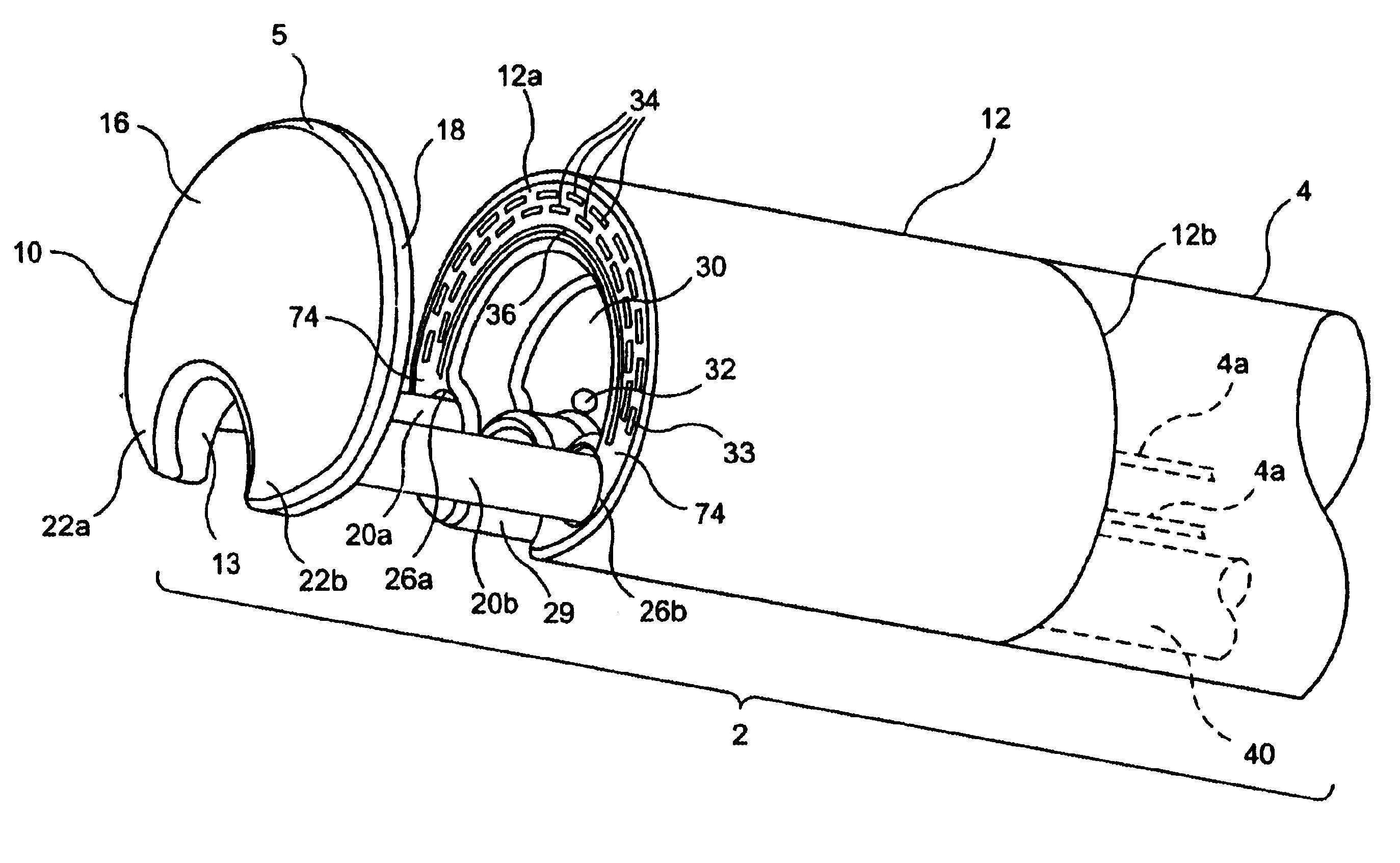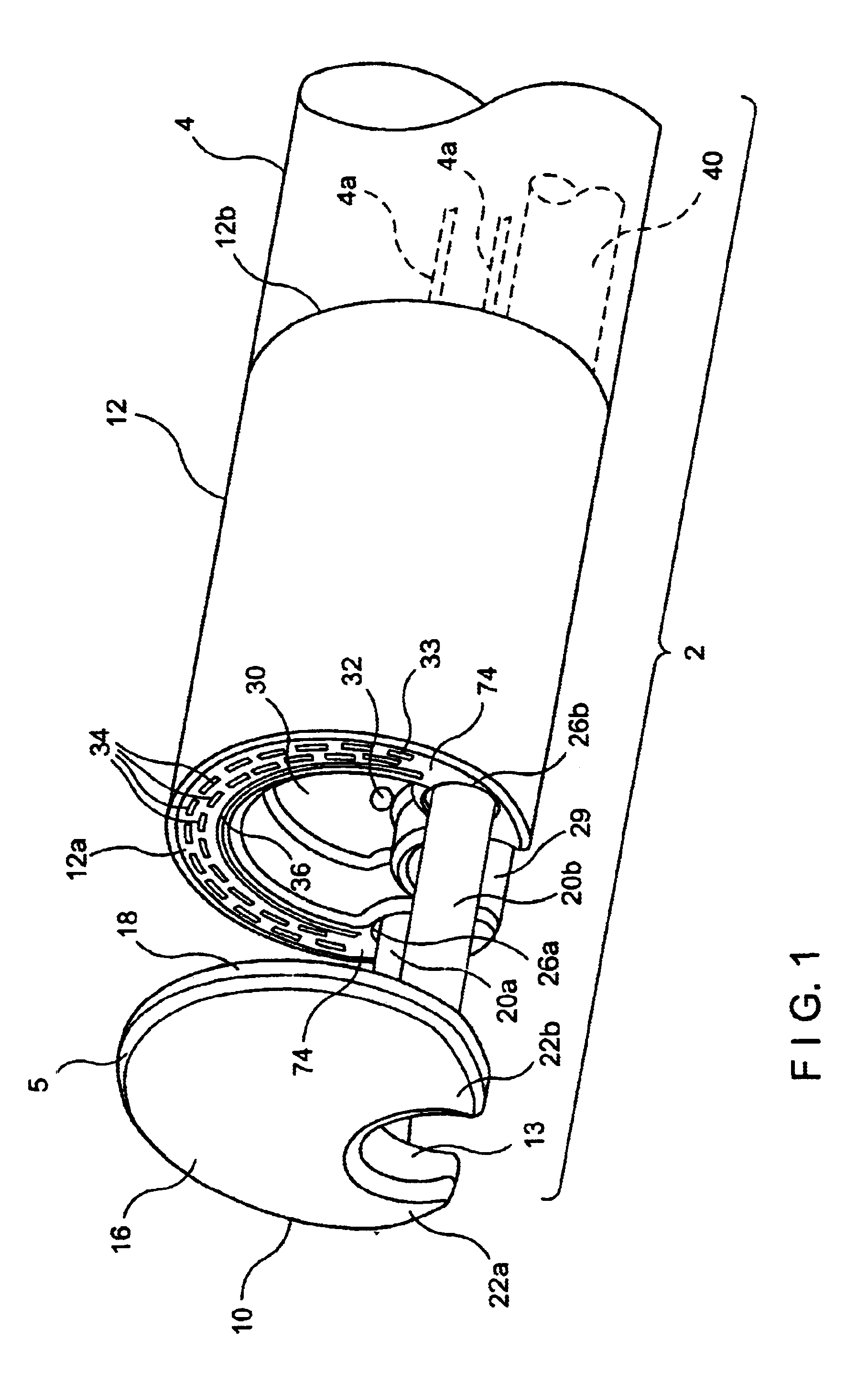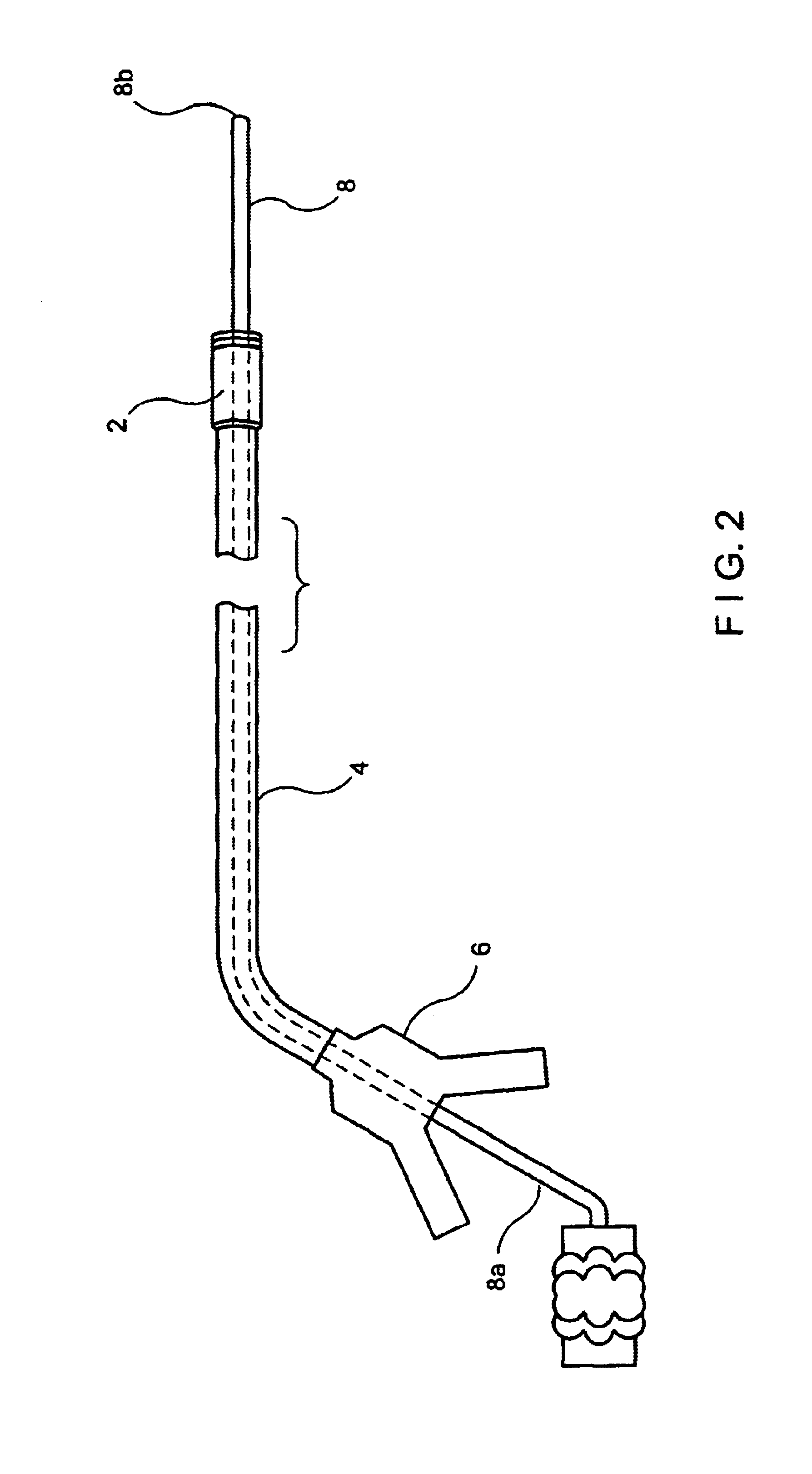Non-circular resection device and endoscope
a non-circular resection and endoscope technology, applied in the field of full-thickness resection devices, can solve the problems of long recovery time, partial or complete loss of mobility, painful incisions,
- Summary
- Abstract
- Description
- Claims
- Application Information
AI Technical Summary
Benefits of technology
Problems solved by technology
Method used
Image
Examples
Embodiment Construction
The present invention is directed to a non-circular endoscope and corresponding FTRD. These non-circular devices have numerous advantages over existing circular devices. For example, the non-circular shape allows the device to take up less space within the body lumen into which it is being inserted. The non-circular endoscope also provides a more efficient means of packaging the combination of the device and endoscope. The more efficient utilization of space enables a device that can capture larger specimen sizes than an equivalent circular endoscope would permit. In addition, a non-circular endoscope for use with an FTRD may be more flexible and therefore more easily bend forwards a desired location, due, for example, to the smaller cross-sectional area of the endoscope. In preferred embodiments, the endoscope is shaped for particular use in combination with devices that perform a full thickness resection or similar procedure. In addition, the shape of a staple cartridge and anvil ...
PUM
| Property | Measurement | Unit |
|---|---|---|
| diameter | aaaaa | aaaaa |
| diameter | aaaaa | aaaaa |
| thickness | aaaaa | aaaaa |
Abstract
Description
Claims
Application Information
 Login to View More
Login to View More - R&D
- Intellectual Property
- Life Sciences
- Materials
- Tech Scout
- Unparalleled Data Quality
- Higher Quality Content
- 60% Fewer Hallucinations
Browse by: Latest US Patents, China's latest patents, Technical Efficacy Thesaurus, Application Domain, Technology Topic, Popular Technical Reports.
© 2025 PatSnap. All rights reserved.Legal|Privacy policy|Modern Slavery Act Transparency Statement|Sitemap|About US| Contact US: help@patsnap.com



